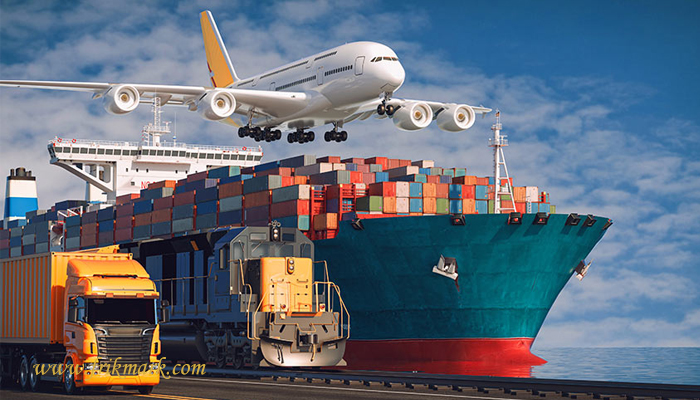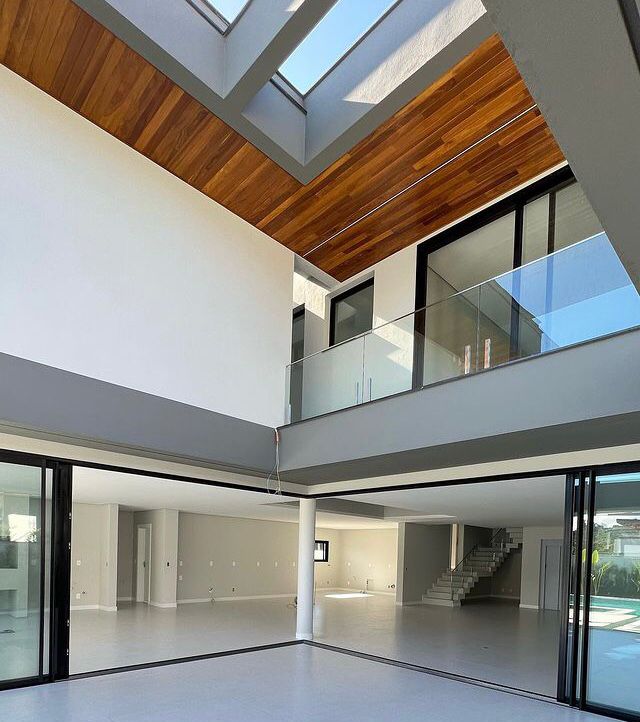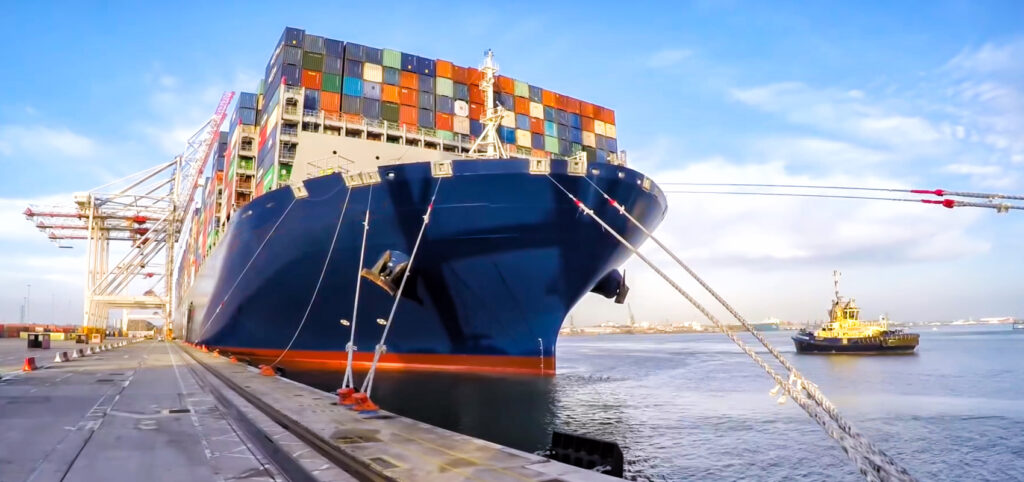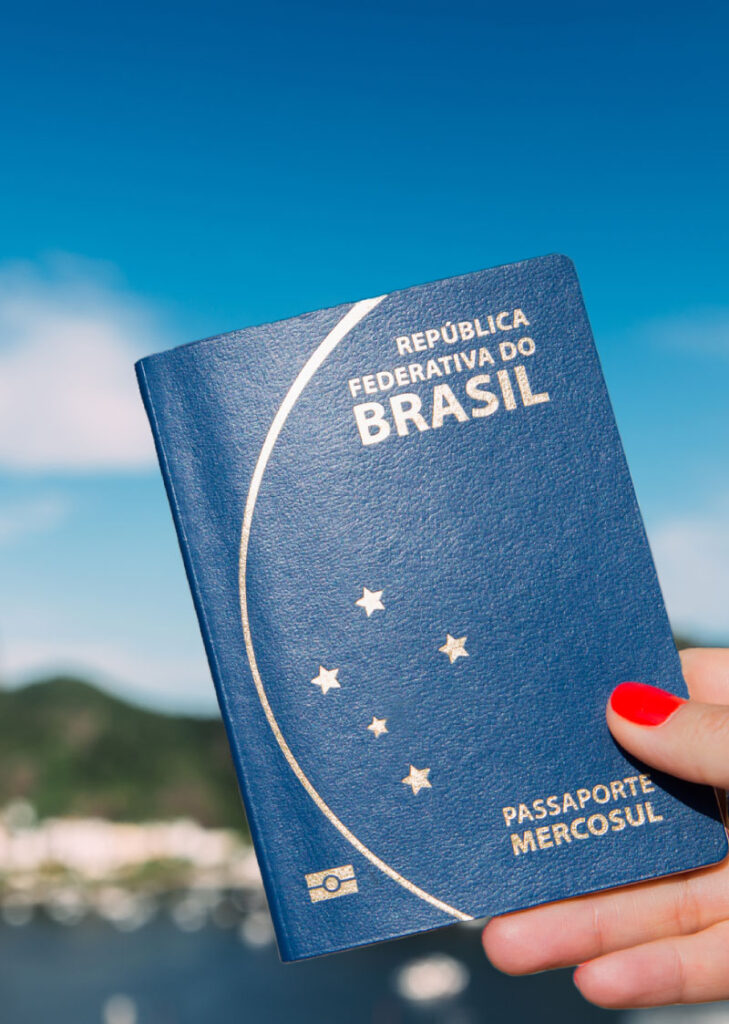According to the statistics of the International Monetary Fund (IMF), Brazil ranks ninth in terms of gross domestic product (known as the most important indicator of economic health) among countries in the world, this brilliant position in the world economy while having A positive balance of trade (BOF) indicates that this country is a leader in various economic matters, including export and import processes. Frikmark Company, with more than three decades of experience in economic presence and activity in Brazil, announces that it wishes to provide its valuable services and experiences in matters related to imports and exports, including clearance, loading, container rental, etc.
Why Export and import in Brazil:
Brazil, a vibrant and dynamic economy, offers numerous opportunities for both exporters and importers. Here’s why:
For Exporters
- Vast Market: Brazil boasts a large and growing consumer market, with a significant middle class.
- Abundant Natural Resources: The country is rich in natural resources, creating demand for machinery, technology, and specialized services to extract and process these resources.
- Diverse Economy: Brazil’s economy is diverse, with sectors like agriculture, mining, manufacturing, and services offering various export opportunities.
- Government Incentives: The Brazilian government often implements incentives and programs to promote exports and attract foreign investment.
For Importers
- Unique Products: Brazil offers a wide range of unique products, such as exotic fruits, high-quality coffee, and unique handicrafts.
- Competitive Pricing: Brazilian products can often be competitively priced, especially in commodities like iron ore and soybeans.
- Strategic Partnerships: Building strong partnerships with Brazilian suppliers can provide access to reliable sources of raw materials and finished goods.
- Diversification: Importing from Brazil can help diversify supply chains and reduce reliance on single-source countries.
However, it’s important to note that navigating the Brazilian market can be complex due to its intricate bureaucracy, high taxes, and logistical challenges.
To successfully engage in trade with Brazil, businesses should:
- Hire Local Experts: Seek the advice of local experts to understand the regulatory environment and cultural nuances.
- Build Strong Relationships: Cultivate strong relationships with Brazilian partners, including distributors, agents, and government officials.
- Comply with Regulations: Adhere to strict import and export regulations to avoid penalties and delays.
- Invest in Logistics: Optimize supply chain logistics to minimize costs and ensure timely delivery.
- Mitigate Risks: Implement strategies to mitigate risks associated with currency fluctuations, political instability, and economic volatility.
By carefully considering these factors, businesses can capitalize on the significant opportunities that Brazil offers.
Opportunities brazil exports and imports:
Brazil offers a wealth of opportunities for both exporters and importers. Here are some key areas:
Export Opportunities in Brazil:
- Agricultural Products: Brazil is a global leader in agricultural production, particularly in commodities like soybeans, sugarcane, coffee, and beef. Exporting these products to countries with high demand can be highly profitable.
- Mineral Resources: Brazil is rich in natural resources, including iron ore, oil, and other minerals. Exporting these commodities to countries with industrial demand can generate significant revenue.
- Manufactured Goods: Brazil has a growing manufacturing sector, particularly in industries like automotive, aerospace, and machinery. Exporting these products to international markets can boost economic growth.
- Services: Brazil’s service sector is expanding, offering opportunities in areas like tourism, education, and IT services. Exporting these services can diversify the economy and generate foreign exchange.
Import Opportunities in Brazil:
- Machinery and Equipment: Brazil imports a wide range of machinery and equipment for its industries, including capital goods and technology. Importing high-quality, advanced technology can enhance productivity and competitiveness.
- Intermediate Goods: Brazil imports various intermediate goods, such as chemicals, plastics, and steel, to support its manufacturing sector. Importing these goods from reliable suppliers can ensure a consistent supply chain.
- Consumer Goods: Brazil imports a variety of consumer goods, including electronics, clothing, and pharmaceuticals. Importing high-quality consumer goods can cater to the growing middle class and enhance consumer satisfaction.
Key Considerations for Businesses
- Complex Regulatory Environment: Brazil has a complex regulatory environment, so it’s crucial to understand and comply with all relevant laws and regulations.
- Infrastructure Challenges: Brazil’s infrastructure, particularly its ports and transportation networks, can be a challenge. It’s important to plan logistics carefully and consider alternative shipping routes.
- Currency Fluctuations: The Brazilian Real can be volatile, so it’s important to manage currency risk effectively.
- Cultural Differences: Understanding Brazilian culture and business practices can be beneficial for building relationships and conducting business effectively.
By carefully considering these factors and leveraging the opportunities that Brazil offers, businesses can successfully navigate the Brazilian market and achieve significant growth.
Challenges Exports and imports in Brazil:
Brazil, despite its significant economic potential, presents several challenges for businesses involved in export and import activities. Here are some of the key challenges:
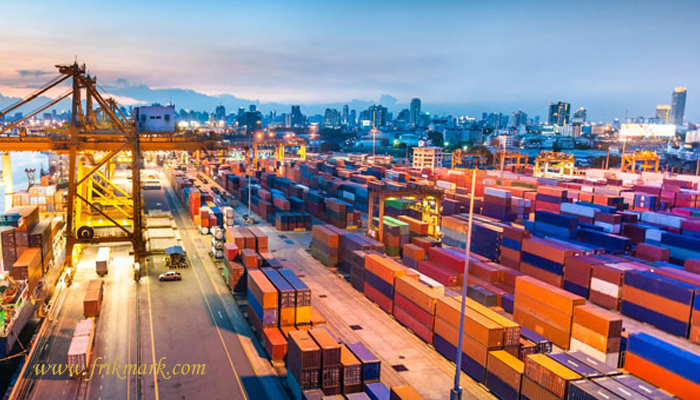
1. Complex Bureaucracy and Regulations:
- Red Tape: Brazil is notorious for its complex bureaucratic processes, which can be time-consuming and costly.
- Numerous Regulations: Businesses must comply with a myriad of federal, state, and municipal regulations, often leading to confusion and delays.
- Frequent Changes: Regulatory changes can occur frequently, making it difficult for businesses to keep up and comply.
2. Infrastructure Limitations:
- Port Congestion: Brazilian ports often suffer from congestion, leading to delays in shipping and increased costs.
- Inefficient Logistics: Inefficient logistics infrastructure, including roads and railways, can hinder the movement of goods within the country.
- High Transportation Costs: High transportation costs can erode profit margins and reduce the competitiveness of Brazilian exports.
3. High Taxes and Tariffs:
- Complex Tax System: Brazil has a complex tax system with multiple taxes and fees, making it difficult to calculate and comply with tax obligations.
- High Import Tariffs: High import tariffs can increase the cost of imported goods and reduce competitiveness.
4. Currency Volatility:
- Brazilian Real Fluctuations: The Brazilian Real is subject to significant fluctuations, which can impact the profitability of export and import operations.
5. Corruption and Bribery:
- Corruption Risks: Corruption can be a significant challenge for businesses operating in Brazil, particularly in obtaining permits, licenses, and contracts.
6. Intellectual Property Protection:
- Weak Enforcement: Weak enforcement of intellectual property rights can expose businesses to the risk of counterfeiting and piracy.
7. Labor Laws and Regulations:
- Complex Labor Laws: Brazil has complex labor laws that can be difficult to navigate, especially for foreign companies.
To mitigate these challenges, businesses should:
- Hire Local Experts: Engage the services of experienced local consultants or lawyers to navigate the complex regulatory landscape.
- Build Strong Relationships: Establish strong relationships with local partners, including distributors, agents, and government officials.
- Comply with Regulations: Ensure strict adherence to all relevant regulations to avoid penalties and delays.
- Invest in Technology: Utilize technology to streamline processes and improve efficiency.
- Diversify Supply Chains: Reduce reliance on a single supplier or market to mitigate risks.
- Stay Informed: Stay updated on the latest regulatory changes and economic developments in Brazil.
By understanding and addressing these challenges, businesses can successfully navigate the Brazilian market and capitalize on its significant opportunities.
Export and Import Company in Brazil:
Brazilian Tourism:
Brazil offers a diverse range of tourist attractions, from stunning beaches and vibrant cities to lush rainforests and historical landmarks. Here are some of the top tourist destinations in Brazil:
1. Rio de Janeiro:
- Christ the Redeemer: A magnificent statue atop Corcovado Mountain overlooking the city.
- Sugarloaf Mountain: A cable car ride to the top offers panoramic views of the city and coastline.
- Copacabana and Ipanema Beaches: World-famous beaches with stunning scenery and lively atmosphere.
- Carnival: A vibrant and colorful festival celebrated annually.
2. Amazon Rainforest:
- Explore the Amazon: Take a boat tour through the rainforest, spot wildlife, and learn about the indigenous cultures.
- Manaus: The gateway to the Amazon, offering a mix of urban and jungle experiences.
3. Foz do Iguaçu:
- Iguaçu Falls: One of the world’s most spectacular waterfalls, shared with Argentina.
- Parque Nacional do Iguaçu: A vast national park with diverse wildlife and stunning landscapes.
4. Salvador:
- Pelourinho: A historic district with colorful colonial architecture and vibrant cultural scene.
- Beaches: Beautiful beaches like Porto da Barra and Farol da Barra.
- Music and Dance: Experience the rhythms of Brazilian music, including samba and axé.
5. São Paulo:
- Cultural Diversity: A cosmopolitan city with a diverse population and a thriving cultural scene.
- Shopping: Numerous shopping malls and boutiques offer a wide range of products.
- Museums and Art Galleries: Explore the city’s rich history and art scene.
6. Lençóis Maranhenses National Park:
- Unique Landscapes: A stunning landscape of white sand dunes and turquoise lagoons.
- Ideal for Adventure: Perfect for hiking, swimming, and exploring the natural beauty.
7. Chapada Diamantina National Park:
- Diverse Landscapes: Mountains, canyons, waterfalls, and caves.
- Outdoor Activities: Hiking, trekking, and canyoneering.
These are just a few of the many amazing destinations that Brazil has to offer. With its diverse culture, stunning landscapes, and warm hospitality, Brazil is a dream destination for many travelers.
Export and Import in Brazil Consultation For This Subjects:
Agriculture in Brazil:
Brazil is a global agricultural powerhouse, known for its diverse range of crops and livestock. Here’s a breakdown of its agricultural sector:
Key Agricultural Products:
- Soybeans: Brazil is the world’s largest soybean producer and exporter.
- Coffee: A major coffee producer, supplying a significant portion of the world’s coffee beans.
- Sugarcane: A leading producer of sugarcane and sugar.
- Corn: A significant producer and exporter of corn.
- Beef: Brazil is a major beef producer and exporter.
- Poultry: A significant producer and exporter of poultry products.
- Oranges: The world’s largest producer of oranges and orange juice.
Factors Contributing to Brazil’s Agricultural Success:
- Favorable Climate: Brazil’s diverse climate zones allow for the cultivation of a wide range of crops.
- Fertile Soil: Large areas of fertile soil contribute to high agricultural yields.
- Technological Advancements: Modern agricultural techniques and technologies have increased productivity.
- Government Support: Government policies and investments in agriculture have played a significant role.
- Large Land Area: Brazil has vast agricultural land, enabling large-scale production.
Challenges:
- Deforestation: Deforestation, particularly in the Amazon rainforest, is a significant environmental concern and can impact agricultural production in the long term.
- Water Scarcity: Some regions in Brazil face water scarcity, which can affect crop yields.
- Climate Change: Climate change can lead to unpredictable weather patterns, impacting agricultural production.
- Land Concentration: A significant portion of agricultural land is concentrated in the hands of large landowners, which can lead to social and economic inequalities.
Brazilian Cuisine:
Despite these challenges, Brazil’s agricultural sector remains a vital part of its economy and a significant contributor to global food production.
Brazilian cuisine is a vibrant mix of influences from Indigenous, Portuguese, African, and other cultures. Here are some of the most popular dishes:
Main Dishes:
- Feijoada: A hearty stew made with black beans, various cuts of pork, and often served with rice, farofa (toasted cassava flour), collard greens, and orange slices.
- Moqueca: A seafood stew originating from the state of Bahia. It typically includes fish or shrimp, tomatoes, onions, peppers, and coconut milk.
- Churrasco: A popular barbecue style where various cuts of meat are grilled and served on skewers.
- Vatapá: A creamy and flavorful stew made with shrimp, fish, or chicken, and a base of bread, peanuts, and palm oil.
- Acarajé: Deep-fried balls made of black-eyed peas, served with shrimp or vatapá.
Snacks and Side Dishes:
- Pão de queijo: Cheesy bread rolls, a popular snack in Brazil.
- Coxinha: A deep-fried pastry filled with chicken or cheese.
- Pastel: A deep-fried pastry filled with various ingredients, such as beef, cheese, or vegetables.
- Farofa: Toasted cassava flour, often used as a side dish or mixed with other ingredients.
Desserts:
- Brigadeiro: A popular chocolate truffle made with condensed milk, cocoa powder, and butter.
- Quindim: A small, sweet dessert made with egg yolks, sugar, and coconut.
- Beijinho: A coconut candy similar to brigadeiro.
Drinks:
- Caipirinha: A popular cocktail made with cachaça (sugarcane spirit), lime, and sugar.
- Guaraná: A popular soft drink made from the guarana fruit.
- Coffee: Brazil is one of the world’s largest coffee producers and exporters.
Brazilian cuisine offers a diverse and flavorful experience, reflecting the country’s rich cultural heritage.
what are the main imports and exports of brazil:
Brazil’s primary exports and imports are heavily influenced by its abundant natural resources and growing industrial sector.
Main Exports of Brazil:
- Agricultural Products: Soybeans, coffee, sugar, beef, corn, and orange juice.
- Mineral Resources: Iron ore, petroleum, and other minerals.
- Manufactured Goods: Automobiles, aircraft, and machinery.
Main import of Brazil:
- Machinery and Equipment: Capital goods and technology for various industries.
- Intermediate Goods: Chemicals, plastics, and steel for manufacturing processes.
- Consumer Goods: Electronics, clothing, and pharmaceuticals.
It’s important to note that Brazil’s trade landscape is constantly evolving, and the specific products being imported and exported may vary over time.
Export conditions from Brazil:
Exporting from Brazil can be a lucrative venture, but it’s essential to navigate the complex regulatory and logistical landscape. Here are some key conditions and considerations:
Regulatory Framework
- Registration: Exporters must be registered with the Secretariat for Foreign Trade (SECEX) and have a valid National Register of Legal Entities (CNPJ) or Individual Taxpayer Registry (CPF).
- Export Declaration: This is the primary document for customs clearance and must be submitted through the Integrated Foreign Trade System (Siscomex).
- Product Documentation: Depending on the product, additional documentation may be required, such as certificates of origin, health certificates, phytosanitary certificates, and export licenses.
- Export Duties: Brazil imposes export duties on certain products, particularly commodities. The rate varies depending on the product and current government policies.
Logistics and Shipping
- Port Infrastructure: While Brazil has significant port infrastructure, port congestion and inefficiencies can sometimes lead to delays.
- Shipping Lines and Freight Forwarders: Choosing a reliable shipping line and freight forwarder is crucial to ensure smooth transportation.
- Incoterms: Understanding Incoterms (International Commercial Terms) is essential for determining responsibilities and costs between the exporter and importer.
- Insurance: Adequate insurance coverage is recommended to protect against risks such as loss, damage, and delays.
Customs Procedures
- Customs Clearance: Brazilian customs procedures can be complex, and delays can occur if documentation is not accurate or complete.
- Customs Broker: Engaging a reputable customs broker can streamline the customs clearance process and reduce the risk of delays and penalties.
- Import Duties and Taxes: While not directly related to exporting from Brazil, understanding import duties and taxes in the destination country is important for pricing and competitiveness.
Additional Considerations
- Currency Exchange: Fluctuations in the Brazilian Real can impact export revenues.
- Economic and Political Factors: Economic and political instability in Brazil can affect export conditions and create uncertainty.
- Trade Agreements: Brazil is a member of several trade agreements, which can impact export duties and quotas.
It’s crucial to consult with a local expert or a specialized export agency to get the most accurate and up-to-date information on export conditions from Brazil.
By carefully considering these factors and seeking professional advice, businesses can successfully navigate the Brazilian export market and maximize their export potential.
About Brazilian Economy:
Brazil’s economy is a complex mix of strengths and challenges. It’s the largest economy in Latin America and one of the world’s top 10 economies by GDP.
Strengths:
- Abundant Natural Resources: Brazil is rich in natural resources, including iron ore, oil, and agricultural products like soybeans, coffee, and sugar.
- Large Domestic Market: A growing middle class and a large population create a significant domestic market for goods and services.
- Manufacturing Capacity: Brazil has a robust manufacturing sector, producing automobiles, aircraft, and other industrial goods.
- Service Sector Growth: The service sector, including finance, tourism, and technology, is expanding rapidly.
Challenges:
- Inequality: Income inequality remains a significant challenge, with a large portion of the population living in poverty.
- Infrastructure: Brazil’s infrastructure, particularly transportation and logistics, needs significant investment to improve efficiency.
- Bureaucracy: Complex bureaucracy and regulations can hinder economic growth and investment.
- Political Instability: Political instability can create uncertainty and discourage foreign investment.
- Inflation: High inflation can erode purchasing power and make it difficult to plan for the future.
Recent Trends:
- Economic Recovery: Brazil’s economy has shown signs of recovery in recent years, with GDP growth and declining inflation.
- Fiscal Challenges: The government faces significant fiscal challenges, including high public debt.
- Social Inequality: Addressing social inequality remains a key challenge for the government.
Despite these challenges, Brazil has the potential to become a global economic powerhouse. Continued economic reforms, investment in infrastructure, and social policies aimed at reducing inequality are crucial for realizing this potential.
The Future of Brazil’s Export and Import:
Brazil’s future in international trade is promising, driven by a combination of factors such as abundant natural resources, a growing middle class, and increasing global demand for commodities. However, significant challenges remain, including infrastructure bottlenecks, bureaucratic hurdles, and economic volatility.
Consultation on exports and imports in Brazil By Frikmark:
Frikmark Company, with more than three decades of experience in the presence and economic activity in Brazil, announces that it wishes to provide its services and valuable experience in matters related to the fields of import and export, including clearance, loading, container rental, etc.
From both air and sea routes, as well as advice on goods and goods suitable for business, which is the result of years of experience and expert team work, at the disposal of real people and companies interested in business activities in Brazil, with the lowest cost and the highest put quality.
If you intend to export and import to Brazil, just contact our team. If you have a specific product in mind and you intend to do business with Brazil, we can carry out the process for you. It doesn’t matter whether your product is industrial or agricultural, such as meat, corn, rice, coffee, soy, etc. To get started, just contact Frikmark experts through our contact page and they will guide you.
How to contact Frikmark Group for advice on Brazilian exports and imports:
Frikmark Group helps you do export and import affairs in Brazil in the easiest and fastest way and you don’t have to worry about difficult coordination, time-consuming and complicated procedures. For this, it is enough to contact 0055-4799662-6648 for more information via WhatsApp or Telegram https://telegram.me/welcome_brazil and benefit from our services. Of course, Frikmark’s services will not be limited to these services; It is also possible to buy property in Brazil, register a company in Brazil, open a bank account in Brazil, obtain a Brazilian visa, buy and sell and rent cars in Brazil, and buy and sell and rent luxury yachts in Brazil.
Contact Us: 0055 47 99662 – 6648
Our Email: [email protected]
Telegram: https://telegram.me/welcome_brazil
